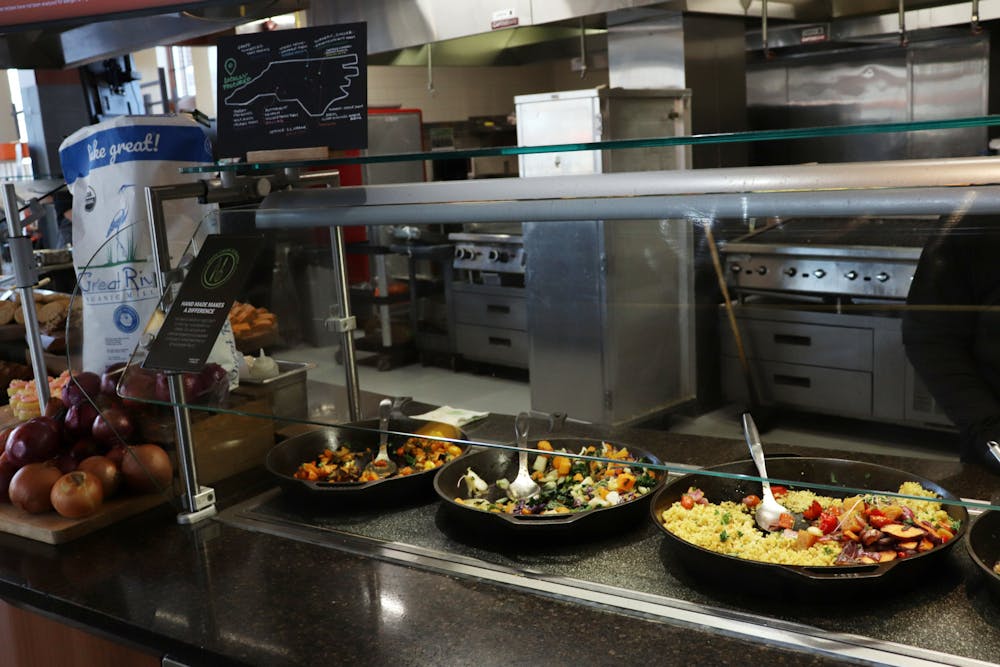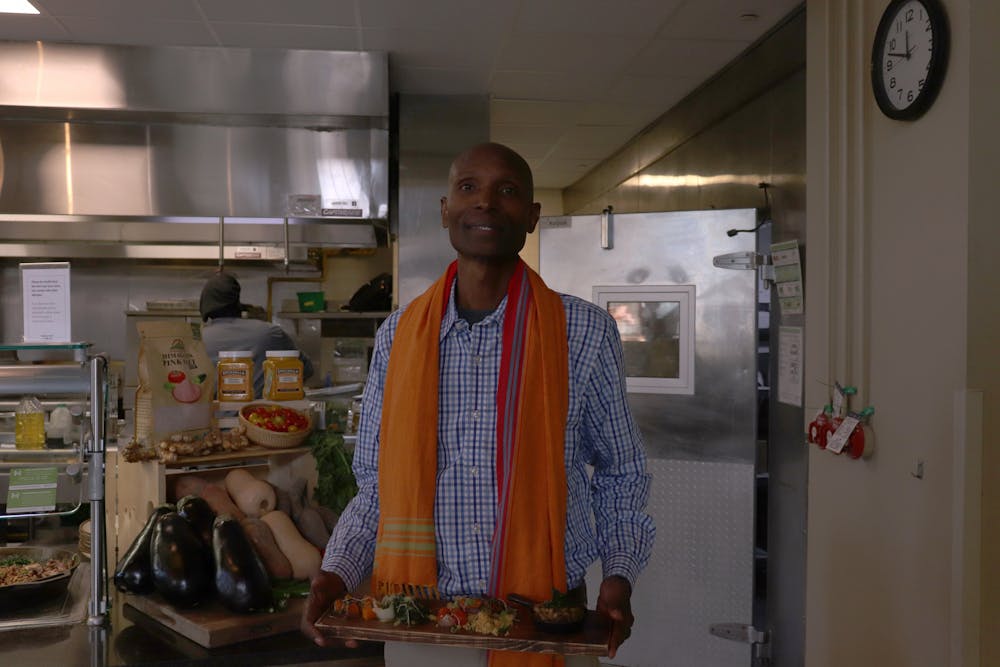As part of Black History Month, chef Njathi Kabui visited Elon University on Feb. 7 and hosted a dining takeover at Lakeside Dining Hall.
Kabui made a four-course meal and shared the history and significance of the food with Elon students. One dish, called Mwohe, featured boiled millet with vegetables and seasonings.
“I wanted to showcase millet, which is the main grain I use,” Kabui said. “Millet is one of the longest domesticated grains in Africa. We grow it in the U.S., but we mainly use it for birds. It’s very easy to grow and it’s not genetically modified.”

Kabui made three additional dishes: Mwago, Matimu, and a vegetable medley. The Mwago was made with black-eyed peas, lamb and sauteed with vegetables. Kabui said this dish is culturally significant because it has ties to helping heal the Pellagra epidemic in the American South.
“Pellagra is brought up by the lack of niacin in our diets. Black-eyed peas are heavy in niacin,” Kabui said. “There is a very intentional historical justification for us to eat in a way that addresses those problems and epidemics we’ve had in the past.”
Kabui said he believes in a tightly-knit relationship between food and culture. He started learning about food and culture in his home country, Kenya, growing up on a farm where they produced most of their own food. Kabui said that from a young age, he would spend much of his time in the kitchen with his mother.
“My mother was a farmer and we grew up to 95% of the food we consumed. We had our own dairy, meat, grains, vegetables, and that had a big impact on my thinking about food,” he said.
At 10 years old, Kabui moved to Nairobi, Kenya. His father ran a restaurant there, and Kabui learned more about food and activism in Nairobi.
He moved to Memphis, Tennessee, to study at LeMoyne-Owen College. He earned his master’s in medical and urban anthropology at the University of Memphis.
His parents were active in the civil rights movement in Kenya during the liberation from British colonialism. Kabui said his parents’ efforts in the movement shaped his current understanding of anthropology – specifically in the context of food justice.
Kabui said he went to culinary school to learn about the western tradition of food, and expanded his cuisine style.
“I have my own cuisine culture – futuristic conscious cuisine – which incorporates indigenous principles from my community where I was born but also from my experience in anthropology and living in the American South,” Kabui said.
Kabui visits college campuses frequently to educate students on food justice and African cuisine. He is set to provide a brunch at McEwen Engagement Space on Feb. 8, where he will talk about African cuisine. To read more of his insights about food anthropology and justice, visit his blog.


